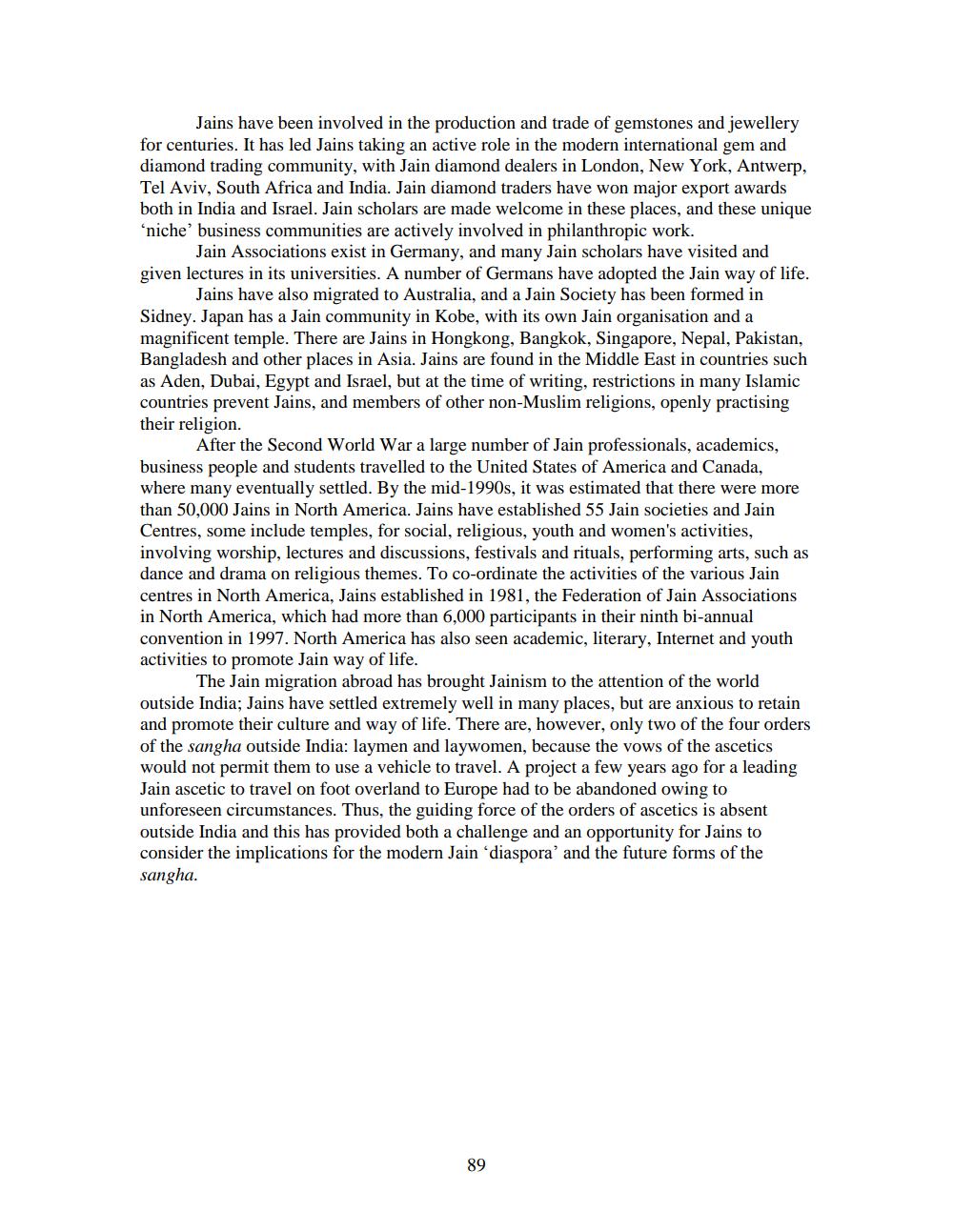________________
Jains have been involved in the production and trade of gemstones and jewellery for centuries. It has led Jains taking an active role in the modern international gem and diamond trading community, with Jain diamond dealers in London, New York, Antwerp, Tel Aviv, South Africa and India. Jain diamond traders have won major export awards both in India and Israel. Jain scholars are made welcome in these places, and these unique 'niche' business communities are actively involved in philanthropic work.
Jain Associations exist in Germany, and many Jain scholars have visited and given lectures in its universities. A number of Germans have adopted the Jain way of life.
Jains have also migrated to Australia, and a Jain Society has been formed in Sidney. Japan has a Jain community in Kobe, with its own Jain organisation and a magnificent temple. There are Jains in Hongkong, Bangkok, Singapore, Nepal, Pakistan, Bangladesh and other places in Asia. Jains are found in the Middle East in countries such as Aden, Dubai, Egypt and Israel, but at the time of writing, restrictions in many Islamic countries prevent Jains, and members of other non-Muslim religions, openly practising their religion.
After the Second World War a large number of Jain professionals, academics, business people and students travelled to the United States of America and Canada, where many eventually settled. By the mid-1990s, it was estimated that there were more than 50,000 Jains in North America. Jains have established 55 Jain societies and Jain Centres, some include temples, for social, religious, youth and women's activities, involving worship, lectures and discussions, festivals and rituals, performing arts, such as dance and drama on religious themes. To co-ordinate the activities of the various Jain centres in North America, Jains established in 1981, the Federation of Jain Associations in North America, which had more than 6,000 participants in their ninth bi-annual convention in 1997. North America has also seen academic, literary, Internet and youth activities to promote Jain way of life.
The Jain migration abroad has brought Jainism to the attention of the world outside India; Jains have settled extremely well in many places, but are anxious to retain and promote their culture and way of life. There are, however, only two of the four orders of the sangha outside India: laymen and laywomen, because the vows of the ascetics would not permit them to use a vehicle to travel. A project a few years ago for a leading Jain ascetic to travel on foot overland to Europe had to be abandoned owing to unforeseen circumstances. Thus, the guiding force of the orders of ascetics is absent outside India and this has provided both a challenge and an opportunity for Jains to consider the implications for the modern Jain 'diaspora' and the future forms of the sangha.
89




